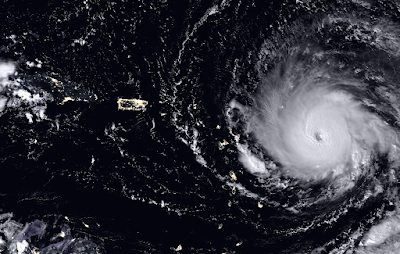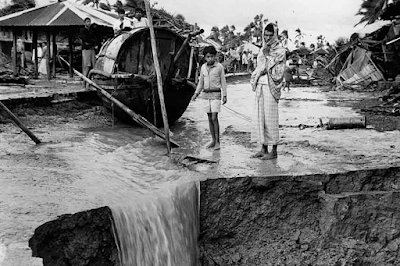The Bhola Cyclone was one of the deadliest tropical cyclone.
The 1970 Bhola cyclone was a devastating tropical cyclone that struck then-East Pakistan and present-day Bangladesh, along with India’s West Bengal on November 11, 1970, 50 years ago.
At least 5,00,000 people lost their lives, primarily due to the storm surge that flooded much of the low-lying islands of the Ganges delta. This was the sixth cyclonic storm of the 1970 North Indian Ocean cyclone season, and also the season’s strongest.
Many offshore islands were devastated. Villages were wiped out and crops were destroyed. In the most severely affected upazila, Tazumuddin, over 45% of the population of 1,67,000 died.
The Pakistani government, led by junta leader General Yahya Khan, was criticised for its delayed handling of the relief operations following the storm, both by local political leaders in East Pakistan and international media. During the election that took place a month later, the opposition Awami League gained a landslide victory in the province, and continuing unrest between East Pakistan and the central Pakistan government triggered the Bangladesh Liberation War, which led to widespread atrocities and eventually concluded with the creation of the country of Bangladesh.
The extent of the cyclone’s destruction was unparalleled. The slums of Noakhali lay desolate for miles, corpses lay scattered unburied and uncovered everywhere. Those who survived this tragedy were worse than dead, many died of starvation.
The Awami League, headed by Sheikh Mujibur Rahman, swept up a landslide victory in the national elections on December 7, 1970, largely in part due to the dissatisfaction over relief efforts by the national government. The elections for nine national assembly and eighteen provincial assembly seats had had to be postponed until January 18, 1971 as a result of the storm.
The government’s handling of the relief efforts helped exacerbate the bitterness felt in then-East Pakistan, swelling the resistance movement there. Funds trickled very slowly and transport was slow in bringing supplies to devastated regions. As tensions increased, by March 1971, foreign personnel evacuated because of fears of violence.
The situation developed into the Bangladesh Liberation War, widened into the Indo-Pakistani War of 1971 in December and concluded with the creation of Bangladesh. A natural event had helped to trigger a civil war.


